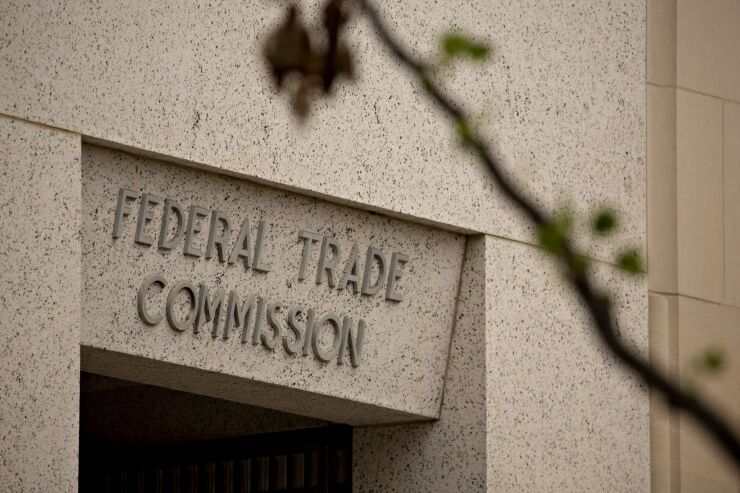One of the biggest winners from a recent Supreme Court decision involving the Federal Trade Commission is a Silicon Valley consumer lender that was not even a party to the lawsuit.
LendingClub has been mired in a three-year legal fight with the FTC over allegedly deceptive business practices. But the San Francisco-based company now appears poised to reach a favorable settlement following a high court ruling that undermined the FTC’s authority to seek restitution.
“I think that what the FTC had was a very, very aggressive tool that has now been effectively blunted,” said David Fioccola, a lawyer at Morrison Foerster.

The case before the Supreme Court involved the payday lending baron Scott Tucker. The FTC had alleged that Tucker had engaged in deceptive lending practices and ordered him to pay $1.27 billion in restitution and disgorgement.
But Tucker, a onetime race-car driver who was a subject of the Netflix docuseries “Dirty Money” and later went to prison, argued that the FTC did not have the authority under federal law that it had been claiming. The agency was interpreting one section of the FTC Act as giving it the ability to directly go to court to obtain monetary relief, effectively bypassing administrative processes.
The Supreme Court agreed. Justice Stephen Breyer, who wrote the 9-0 decision, noted in the opinion that the FTC still has the opportunity to seek restitution under other statutory provisions. But doing so is likely to be slower and more cumbersome, which could give consumer lenders more leverage in cases filed by the FTC. The FTC and the Consumer Financial Protection Bureau share authority to enforce consumer financial protection laws against nonbanks.
“This is a full-body blow to the FTC’s enforcement powers and places a significant amount of more recent FTC orders for monetary relief in jeopardy,” lawyers at Manatt Phelps & Phillips wrote in a note about the decision.
Consumer advocates expressed disappointment with the ruling. Ed Mierzwinski, senior director of federal consumer programs at the U.S. Public Interest Research Group, said in a press release that the decision leaves the door open for other bad actors to follow Tucker’s lead without fear of serious financial repercussions.
In the wake of the ruling, some industry lawyers have predicted that the CFPB, which may soon be headed by former FTC Commissioner Rohit Chopra, will seek to fill the enforcement void left by the Supreme Court ruling.
State attorneys general could also devote more resources to consumer finance enforcement, though predictions during the Trump presidency about a likely wave of cases by blue-state AGs
There is also the possibility that Congress will pass a new law to grant to the FTC the wide authority that the agency asserted prior to the April 22 court decision. “We urge Congress to act swiftly to restore and strengthen the powers of the agency so we can make wronged consumers whole,” acting FTC Chairwoman Rebecca Kelly Slaughter said in a written statement after the ruling.
For LendingClub, the implications of the Supreme Court’s decision are relatively straightforward. In a 2018 lawsuit, the FTC alleged that the online consumer lender deceived borrowers, who were often charged origination fees of $1,000 or more, with advertising claims that its loans did not carry hidden fees.
LendingClub called the allegations unwarranted, both legally and factually, and fought them in court.
The LendingClub case has been on hold since last summer, when a federal judge granted the company’s request for a stay pending the Supreme Court’s ruling. U.S. Magistrate Judge Jacqueline Scott Corley wrote at the time that exposing LendingClub to the risk of a monetary judgment when the FTC’s ability to collect such a judgment was under review by the Supreme Court would be inequitable.
In the years since the FTC filed suit, LendingClub
In a written statement Monday, LendingClub said that it respects the FTC’s mission but continues to believe that the company has not violated the FTC Act. The company also stated that the Supreme Court’s ruling eliminates the commission’s asserted basis for seeking monetary relief. “We will continue to work towards a final resolution of our case,” LendingClub’s statement read.





